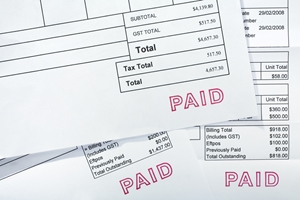The Federal budget has been making headlines of late, with the musings of Finance Minister Joe Hockey welcomed by some and disparaged by others. While there's a fair share of indifferent news, the budget could usher in a period of prosperity for a raft of Australia's small to mid-sized enterprises (SMEs).
More tax incentives for small businesses
The government has introduced measures which will enable small businesses to write off a level of tax, ideally making it easier for them to invest that capital elsewhere and prosper accordingly.
In total, there will be around $5 billion in funding assigned to help SMEs through a variety of schemes, with the benefits from lesser taxation perhaps the most widely accessible.
More on the changes and the ins and outs of how they affect small businesses is explained by John Corias, Senior Partner at MAS Accounts, in this interview with the Special Broadcasting Service:
Mr Hockey has outlined a 100 per cent deduction of $20,000 per purchased item, with no total cap on the amount of money the government will front up as a result.
Consequently, now is a great time for SMEs to assess their finances and potentially spend any available surpluses on bettering their operations.
"If you run a cafe it might be new kitchen equipment, or new tables and chairs. If you're a tradie, it might be new tools or a computer … cars and vans, kitchens or machinery … anything under $20,000 is immediately 100 per cent tax deductible," explained Mr Hockey when unveiling the budget, as quoted by the Guardian.
There will be around $5 billion of funding assigned to help SMEs through a variety of schemes.
A balanced approach to spending
The changes are applicable immediately, providing even more of an incentive to small businesses to invest in themselves. There are benefits for SMEs to spend now, but the practice of doing so should be met with some trepidation for two reasons.
Firstly, buying anything for the sake of it will only accelerate depreciation. While any item under $20,000 is eligible for the tax cut providing there's proof that's for business use, pursuing resources that aren't imperative is typically detrimental.
Secondly, items, equipment and products shouldn't be pursued ahead of the health of the wider business's finances. Bookkeeping and accounting can be difficult at the best of times, and doing so accurately is likely to get harder if there's a flood of capital exiting the company, just because there are tax incentives available.
Ultimately, while there are certainly advantages to be gained for SMEs, it is best to approach the taxation changes with a level of caution, especially if any spending were to compromise the wider business financing that the company has in place.


